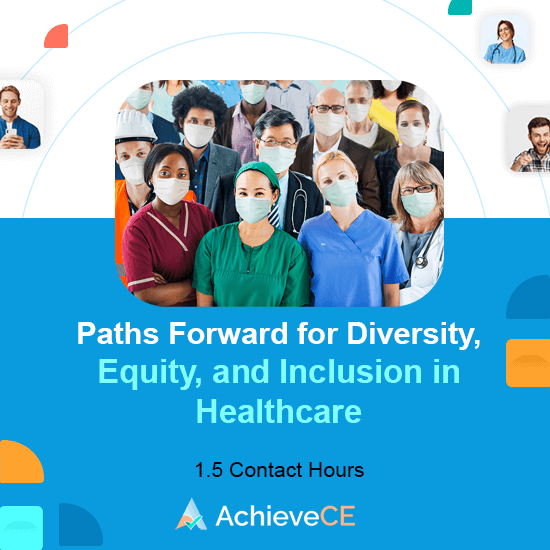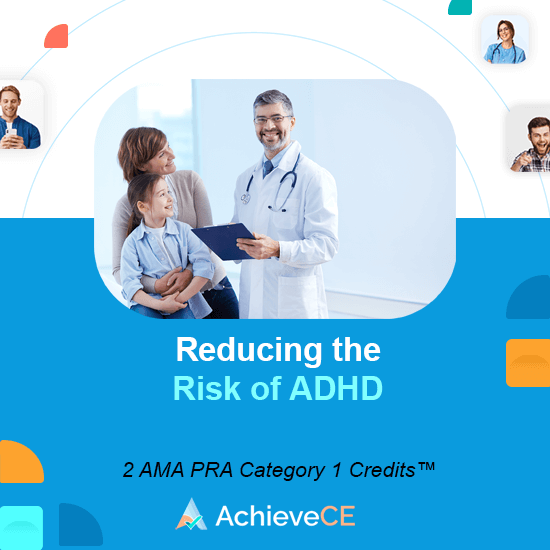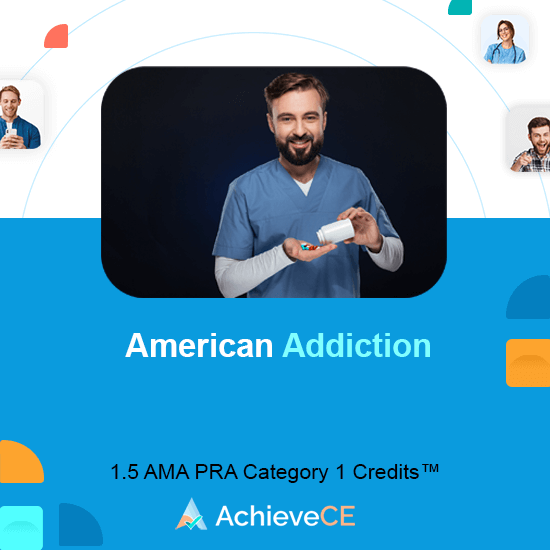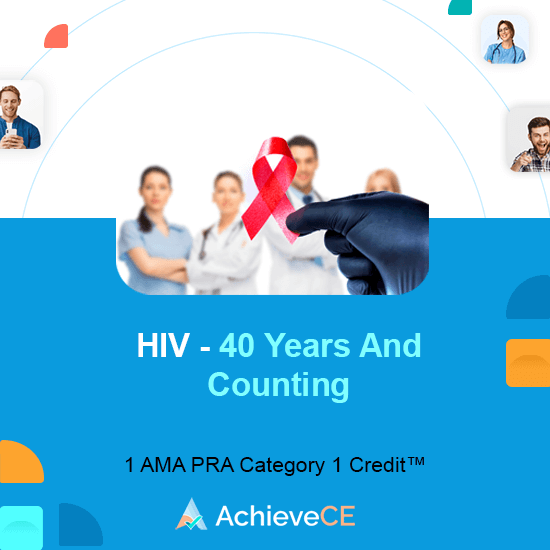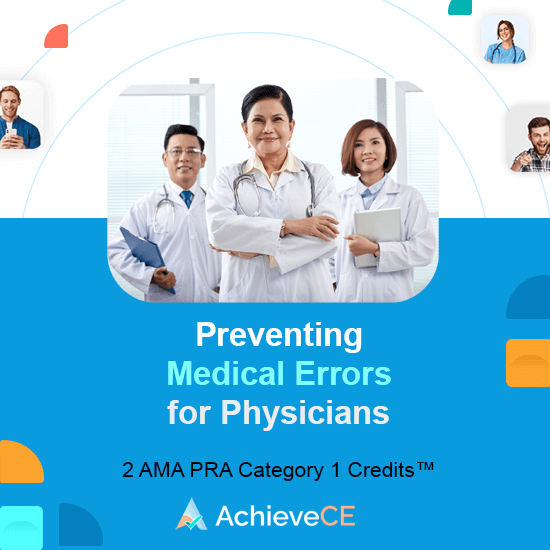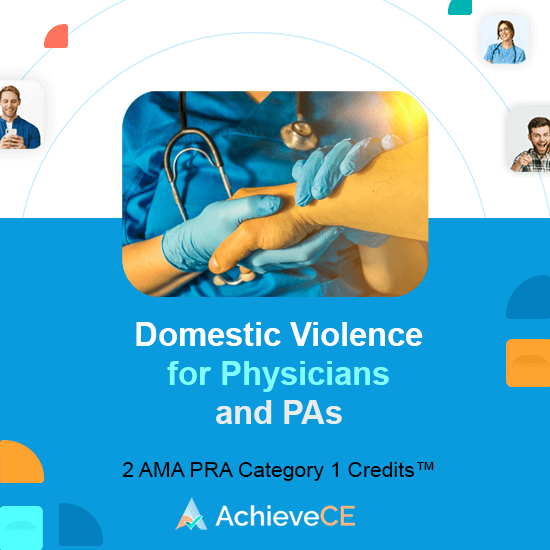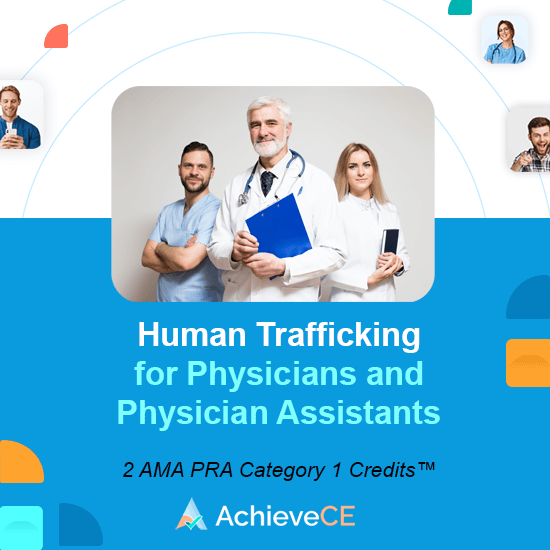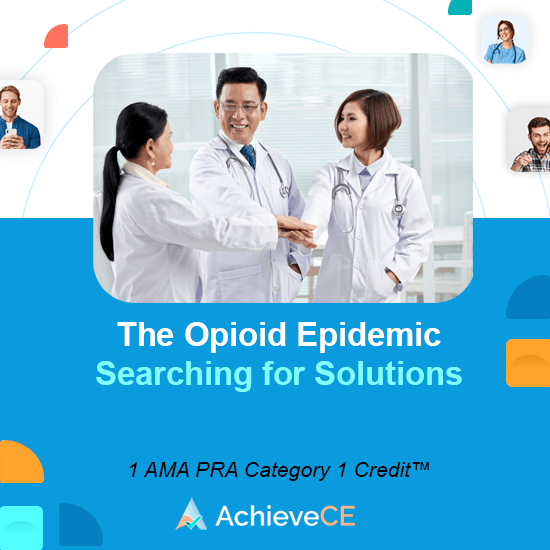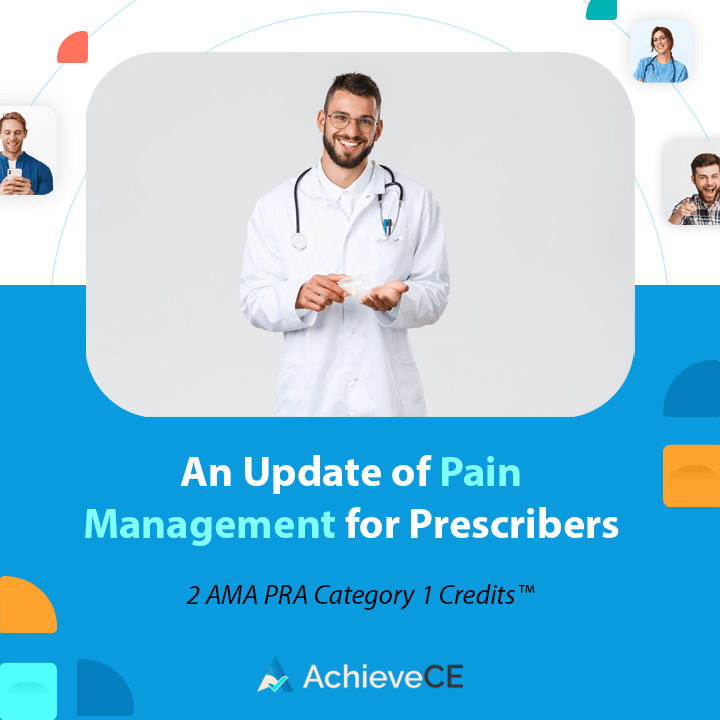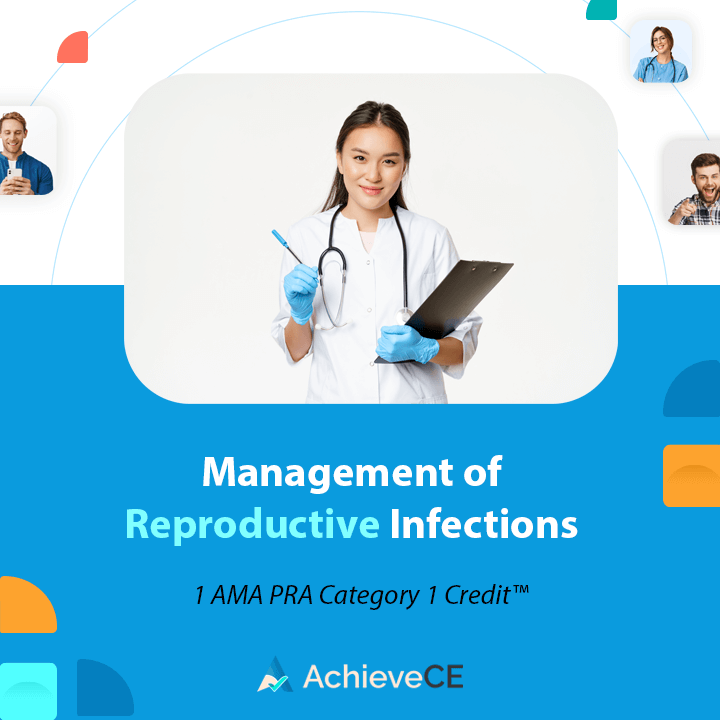AchieveCE CME Courses
1 - 10 of 17 results
AchieveCE Paths Forward for Diversity, Equity, and Inclusion in Healthcare
Notable disparities are present both with regard to individuals in the healthcare profession as well as in the delivery of healthcare to the patient population. Increasing awareness of the importance of diversity, equity, and inclusion is important for expanding access to high quality healthcare.
This presentation will be designed to introduce the audience to an important national level dialogue on the concepts of diversity, equity, and inclusion. Additionally, this topic will be tailored to understanding how DEI relates to healthcare practice and note specific steps the profession is taking to improve DEI at an organizational level.
See full details chevron_right- Cost: $30
- Credit hours: 1.5
- Format: Online Video
AchieveCE Reducing the Risk of ADHD
Attention-deficit/hyperactivity disorder (ADHD) is a chronic neurodevelopmental disorder that has been diagnosed in up to 10% of school-age children in the US and frequently persists into adulthood. A study in a large Danish cohort found that ADHD was associated with higher mortality rates in children, adolescents, and adults, mainly due to accidents. Pharmacologic treatment of ADHD in children has been reported to decrease the risk of substance abuse in adolescents, and use of ADHD medications in adults has been associated with a reduced risk of serious traffic accidents and criminal behavior. This activity discusses how to reduce the risk of ADHD with PTBM and drugs approved by the FDA for treatment of ADHD.
See full details chevron_right- Cost: $24
- Credit hours: 2
- CME credits awarded by: 2 AMA PRA Category 1 Credits™ by The Medical Letter and AchieveCE
- Format: On-Demand Online
AchieveCE American Addiction
Every 7 minutes in our country, a person dies from a drug overdose, while a child is also born approximately every 30 minutes dependent on opioids. How do we as healthcare professionals offer non-stigmatic patient care and contribute to the progress of society in the right direction? Substance use disorder (addiction) is likened to an iceberg or a weed, in that the issues underneath the surface are typically even more complicated than what is viewed from the surface. Addiction spans hundreds of substances of abuse highlighted by stimulants (cocaine and methamphetamine), cannabis (plant, synthetics, and extracts), and opioids (heroin, fentanyl, and carfentanyl). As one can recall with the substance of ethyl alcohol (i.e. beer, wine, and hard liquor), a substance may never actually chemically change, yet can move across legal classifications of substances, leaving all healthcare professionals in need of knowledge on all substances of abuse. Opioid use disorder (opioid addiction) is combated with the medication-assisted treatments (MAT) of naltrexone, methadone, and buprenorphine, while opioid overdose respiratory depression is reversed with naloxone. Over the course of this activity, we will aim for “higher” education on all of these dynamic aspects. Unlike opioids, this activity is sure to open your eyes and possibly even elevate your blood pressure and/or heart rate!!!
See full details chevron_right- Cost: $20
- Credit hours: 1.5
- CME credits awarded by: 1 AMA PRA Category 1 Credit™ by Continuing Education Company, Inc. and AchieveCE, ACPE, AGD PACE, and ANCC.
- Format: Online Video
AchieveCE HIV – 40 Years And Counting…
With eight categories of HIV meds now available, healthcare professionals need to be up to date about these therapies. Whether using regimens from 20 years ago, or the newest drugs healthcare professionals need to be monitoring adherence to those regimens. By providing data from the San Francisco Study to show the needs for 95% adherence. This Florida-approved course will also describe the advantages and disadvantages of each category of drugs, as well as those individual drugs.
See full details chevron_right- Cost: $15
- Credit hours: 1
- CME credits awarded by: 1 AMA PRA Category 1 Credit™ by Continuing Education Company, Inc. and AchieveCE, ACPE, AGD PACE, and ANCC.
- Format: Online Video
AchieveCE Preventing Medical Errors for Physicians
This course fulfills the ACCME, Florida Board of Medicine, and Florida Physician Assistants requirement to provide medical professionals with a clearer understanding of medical errors, the devastating effects that these errors can have on both patients and health care providers, and how to use root cause analysis to identify and prevent common medical errors.
See full details chevron_right- Cost: $24
- Credit hours: 2
- CME credits awarded by: Continuing Education Company, Inc. and AchieveCE.
- Format: On-Demand Online
AchieveCE Domestic Violence for Physicians and PAs
This course fulfills the Florida Board requirement for MDs and PAs for a domestic violence training that discusses the categories, signs and symptoms, and reporting obligations for known or suspected domestic violence cases.
See full details chevron_right- Cost: $24
- Credit hours: 2
- CME credits awarded by: Continuing Education Company, Inc. and AchieveCE.
- Format: On-Demand Online
AchieveCE Human Trafficking for Physicians and Physician Assistants
This course is designed for healthcare professionals and those in allied professions who may come into contact with and be called upon to intervene on behalf of victims of human trafficking within the scope of their practice.
See full details chevron_right- Cost: $19
- Credit hours: 2
- CME credits awarded by: Continuing Education Company, Inc. and AchieveCE.
- Format: On-Demand Online
AchieveCE The Opioid Epidemic: Searching for Solutions Webcast
According to the 2015 National Survey on Drug Use and Health, approximately 3.8 million people (1.4% of those ages 12 or older) reported misusing prescription pain relievers, while another 329,000 people reported using heroin. Within the same year, 52,404 lethal overdoses took place, making drug overdose the leading cause of accidental death within the United States. Stancliff et al estimated that as of 2012, approximately 80% of people dependent on heroin or prescription opioids were not engaged in any treatment and many in treatment do not use the most effective medication-assisted treatments available to them.
Despite recent increased awareness of opioid use disorder (OUD) and efforts to improve access to care, several barriers to treatment still exist, including financial, geographic, regulatory, and social. In 2012, only 2.2% of physicians in the United States obtained waivers to prescribe buprenorphine for the treatment of OUD. Of those who received waivers, 41.6% were psychiatrists. This may be perceived as a potential barrier to OUD treatment as patients are often resistant to referrals to psychiatric and/or addiction clinics given the stigmas commonly surrounding addiction and mental health. Furthermore, physicians with waivers were found to practice primarily in urban settings, leaving a large portion of the rural population without access to buprenorphine treatment.
With all this in mind, education is needed in regards to current and emerging treatment options for OUD available to multiple patient populations. Also, with the deaths due to drug overdoses still elevated, education on how to recognize and reverse an opioid overdose is needed.
This presentation will address the above needs by discussing the science behind opioid use disorder as well as reflect upon current statistics associated with its impact on the United States. During the discussion, opioid overdose risks will be discussed and participants will be able to practice recognizing key symptoms of an overdose situation. Steps of using naloxone will be discussed and connected to how to appropriately seek out treatment for maintenance of opioid use disorder. Finally, new buprenorphine products and the potential role of naltrexone will be applied to this stigmatized population.
See full details chevron_right- Cost: $15
- Credit hours: 1
- CME credits awarded by: Continuing Education Company, Inc. and AchieveCE, ACPE, AGD PACE, and ANCC
- Format: Online Video
AchieveCE An Update on Pain Management Drugs for Prescribers
This course provides 2 AMA PRA Category 1 Credit for license renewal and talks about the pharmacology, adverse effects, dosage, and administration of FDA-approved treatments for acute pain like nonopioid analgesics, adjuvant pain medications, migraine medicines, Tramadol/Celecoxib (Seglentis), Bupivacaine/Meloxicam (Zynrelef), IV Meloxicam (Anjeso), and Benzhydrocodone/Acetaminophen (Apadaz).
See full details chevron_right- Cost: $24
- Credit hours: 2
- CME credits awarded by: The Medical Letter and AchieveCE
- Format: On-Demand Online
AchieveCE Management of Reproductive Infections
This course provides 1 AMA PRA Category 1 Credit for license renewal. Vaginal infections can cause pain and discomfort. Without treatment, they may lead to complications that can adversely affect a person’s health. From bacterial vaginosis to sexually transmitted infections, learn more about a few of the most common types of vaginal infections and symptoms here. This activity provides recommendations for the management of most sexually transmitted infections (STIs) other than HIV and viral hepatitis and FDA-approved treatments for bacterial vaginosis like Tinidazole (Tindamax) and Secnidazole (Solosec).
See full details chevron_right- Cost: $19
- CME credits awarded by: The Medical Letter and AchieveCE
- Format: On-Demand Online

